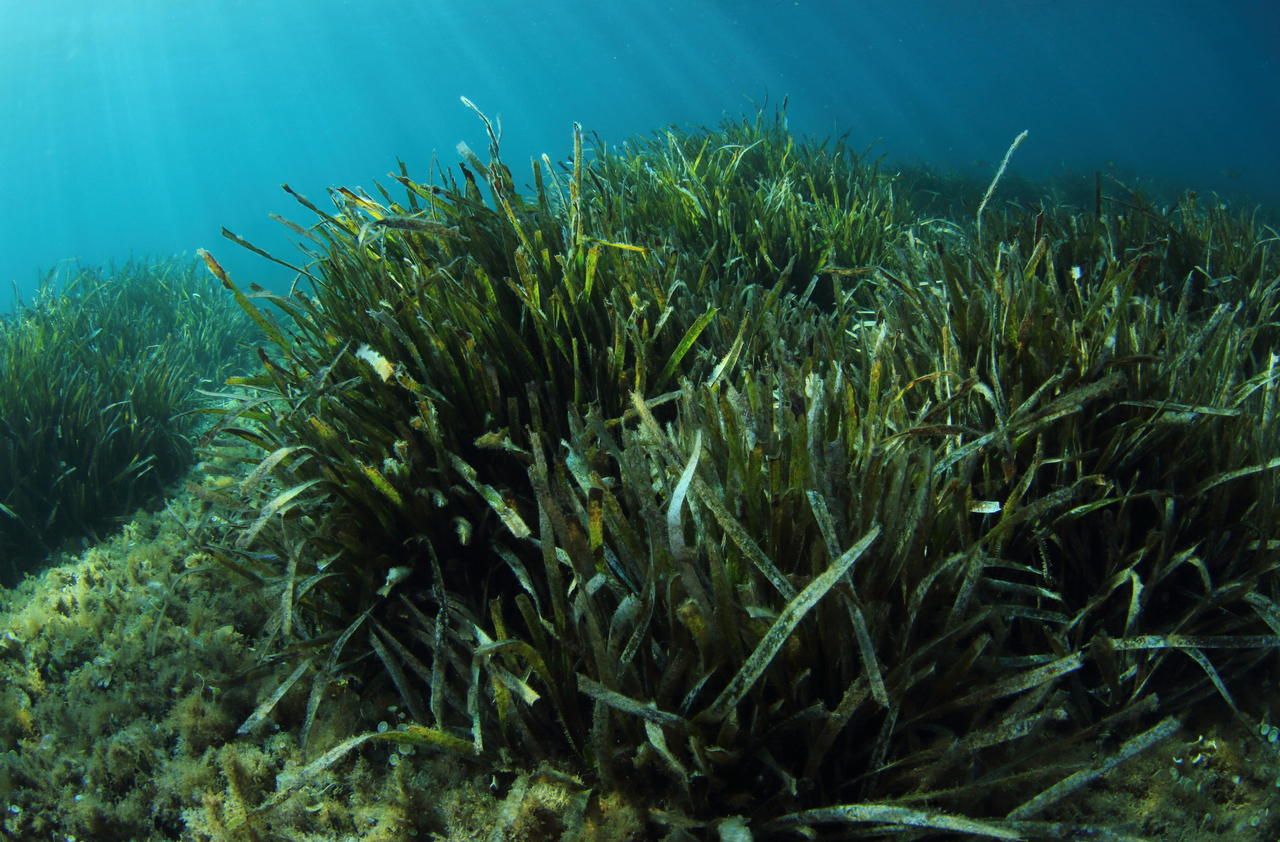READ ALSO>
Plastic pollution: the Mediterranean, the most affected sea in Europe
Posidonia has remarkable virtues.
Not only does it stabilize the soil and fight against erosion, thanks to its submarine meadows which cover millions of hectares in the Mediterranean, but it is capable of absorbing extraordinary amounts of carbon while rejecting tons. oxygen.
Posidonia is therefore the lung of the Mediterranean Sea.
But it is also its natural filter.
The Spanish researcher Anna Sànchez-Vidal, has demonstrated the ability of this plant to capture plastic microparticles in its long flat leaves, which fall in the fall and agglomerate in unbreakable balls.
Depending on the currents and the weather, these agglomerates of fibers and plastic, called "the balls of Neptune" are washed up on the beach.
“That's why we didn't have to dive to study them!
»Explains the Iberian specialist in plastic pollution.
And the good news is to discover that at less than 40 m of depth, an ecosystem is able to filter small particles of hydrocarbons which will not fall in distant limbo where it will never be able to go to seek them ”.
600 fragments for a kilo
This process, described for the first time in a scientific way, is as simple as it is ingenious since it is based on the natural life cycle of posidonia.
According to calculations by Spanish researchers, 50% of the balls of posidonia fibers enclose plastic materials and the latter retain up to more than 600 fragments for a kilo of plant material.
In 17% of cases, the balls do their job of “cleaning the seas” even more by capturing up to 1470 small pieces of plastic.
However, should we start planting fields of Posidonia?
"Impossible" answers researcher Thierry Thibaut, specialist in marine vegetation at the University of Aix-en Provence.
“This endemic species is protected.
We are not allowed to touch it.
It grows very slowly and remains quite fragile ”.
In any case, the posidonia will not be able to save the Mediterranean Sea from the pollution which is too enormous.
While each year, between 9 and 12 million tons of plastic are dumped in the various seas around the globe, the surface occupied by the Posidonia meadows is in free fall, estimated to fall between 13% and 50% since 1960. "We must completely stop using single-use plastic and reduce our waste, because we have already transformed the marine environment for hundreds of years."

